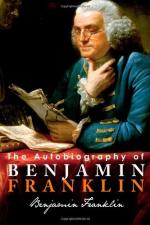We were several times chas’d in our passage, but outsail’d every thing, and in thirty days had soundings. We had a good observation, and the captain judg’d himself so near our port, Falmouth, that, if we made a good run in the night, we might be off the mouth of that harbor in the morning, and by running in the night might escape the notice of the enemy’s privateers, who often crus’d near the entrance of the channel. Accordingly, all the sail was set that we could possibly make, and the wind being very fresh and fair, we went right before it, and made great way. The captain, after his observation, shap’d his course, as he thought, so as to pass wide of the Scilly Isles; but it seems there is sometimes a strong indraught setting up St. George’s Channel, which deceives seamen and caused the loss of Sir Cloudesley Shovel’s squadron. This indraught was probably the cause of what happened to us.
We had a watchman plac’d in the bow, to whom they often called, “Look well out before there,” and he as often answered, “Ay ay; " but perhaps had his eyes shut, and was half asleep at the time, they sometimes answering, as is said, mechanically; for he did not see a light just before us, which had been hid by the studdingsails from the man at the helm, and from the rest of the watch, but by an accidental yaw of the ship was discover’d, and occasion’d a great alarm, we being very near it, the light appearing to me as big as a cart-wheel. It was midnight, and our captain fast asleep; but Captain Kennedy, jumping upon deck, and seeing the danger, ordered the ship to wear round, all sails standing; an operation dangerous to the masts, but it carried us clear, and we escaped shipwreck, for we were running right upon the rocks on which the light-house was erected. This deliverance impressed me strongly with the utility of light-houses, and made me resolve to encourage the building more of them in America, if I should live to return there.
In the morning it was found by the soundings, etc., that we were near our port, but a thick fog hid the land from our sight. About nine o’clock the fog began to rise, and seem’d to be lifted up from the water like the curtain at a play-house, discovering underneath, the town of Falmouth, the vessels in its harbor, and the fields that surrounded it. This was a most pleasing spectacle to those who had been so long without any other prospects than the uniform view of a vacant ocean, and it gave us the more pleasure as we were now free from the anxieties which the state of war occasion’d.
I set out immediately, with my son, for London, and we only stopt a little by the way to view Stonehenge on Salisbury Plain, and Lord Pembroke’s house and gardens, with his very curious antiquities at Wilton. We arrived in London the 27th of July, 1757.16
16 Here terminates
the Autobiography, as published by
Wm.
Temple Franklin and his successors. What follows
was
written in the last year of Dr. Franklin’s life,
and
was first printed (in English) in Mr. Bigelow’s
edition
of 1868.—Ed.




